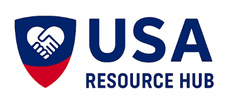Community Action Agencies (CAAs) are nonprofit organizations designed to help individuals and families overcome poverty and achieve long-term stability. Operating at the local level, CAAs tailor their services to meet the needs of their communities, offering everything from emergency financial aid to job training and housing support. If you are facing financial hardship or need help navigating life’s challenges, a CAA may be one of your most valuable resources.
What Are Community Action Agencies?
CAAs were established under the Economic Opportunity Act of 1964 as part of the War on Poverty. Today, there are over 1,000 CAAs across the United States, each serving a specific geographic area. These agencies are funded through federal, state, and local sources, and they work in partnership with other nonprofits, government programs, and community organizations.
Their mission is simple: to empower people with the tools and support they need to become self-sufficient. Whether you are dealing with unemployment, housing insecurity, or rising utility bills, CAAs offer practical solutions grounded in local knowledge.
Key Services Offered by CAAs
While services vary by location, most Community Action Agencies offer a core set of programs designed to address immediate needs and support long-term progress:
1. Emergency Financial Assistance
CAAs provide short-term financial help for urgent needs such as rent, utilities, food, and transportation. This can include deposit assistance for individuals moving into new housing, helping cover the upfront costs that often prevent low-income renters from securing a safe place to live.
2. Housing Support
In addition to deposit assistance, CAAs may offer rental subsidies, foreclosure prevention counseling, and referrals to transitional housing programs. Some agencies also partner with local landlords to provide affordable housing options.
3. Energy and Utility Assistance
Many CAAs administer programs like LIHEAP (Low Income Home Energy Assistance Program), which helps families pay heating and cooling bills. Weatherization services may also be available to improve energy efficiency and reduce monthly costs.
4. Employment and Job Training
CAAs often provide resume workshops, job placement services, and access to vocational training. These programs are designed to help individuals gain the skills needed to secure stable employment and increase earning potential.
5. Education and Youth Services
Some agencies offer early childhood education programs such as Head Start, as well as tutoring, mentoring, and after-school activities for school-aged children. Adult education, including GED preparation and financial literacy classes, may also be available.
6. Health and Nutrition
CAAs may provide access to food pantries, nutrition education, and referrals to health clinics. Some agencies also help clients enroll in public health insurance programs or access mental health services.
Who Qualifies for Assistance?
Eligibility requirements vary by program and location, but most services are targeted toward individuals and families with incomes at or below 125% to 200% of the federal poverty level. Priority is often given to seniors, people with disabilities, single-parent households, and those experiencing homelessness or domestic violence.
You do not need to be unemployed to qualify. Many working families struggle to make ends meet and are eligible for support. CAAs are designed to help people at all stages of financial hardship—from crisis to recovery to long-term planning.
How to Apply
Applying for assistance through a Community Action Agency is usually straightforward. Here are the typical steps:
- Find your local CAA: Visit the Community Action Partnership website or search online for “Community Action Agency near me” to locate the office serving your area.
- Review available programs: Each agency has its own set of services. Check their website or call to learn what is currently offered and what documentation is required.
- Schedule an intake appointment: Most agencies require an initial interview to assess your needs and determine eligibility. Be prepared to provide proof of income, identification, and documentation related to your request (e.g., lease agreement for deposit assistance).
- Complete the application: Some programs may have separate forms or online portals. Staff will guide you through the process and help you gather any missing documents.
- Follow up: Processing times vary, so stay in contact with your caseworker and respond promptly to any requests for additional information.
Tips for a Successful Application
- Be honest and thorough: Incomplete or inaccurate information can delay your application.
- Ask questions: Staff are there to help. If you are unsure about eligibility or documentation, speak up.
- Explore multiple programs: You may qualify for more than one type of assistance. Ask about bundled services or referrals to partner organizations.
Community Action Agencies are long-term partners in financial recovery and personal growth. Whether you need deposit assistance to secure housing, help paying utility bills, or support finding a job, CAAs offer practical tools to help you move forward.
If you are struggling, do not wait. Reach out to your local Community Action Agency and take the first step toward stability. The help is there. You just have to ask.


Leave a Reply